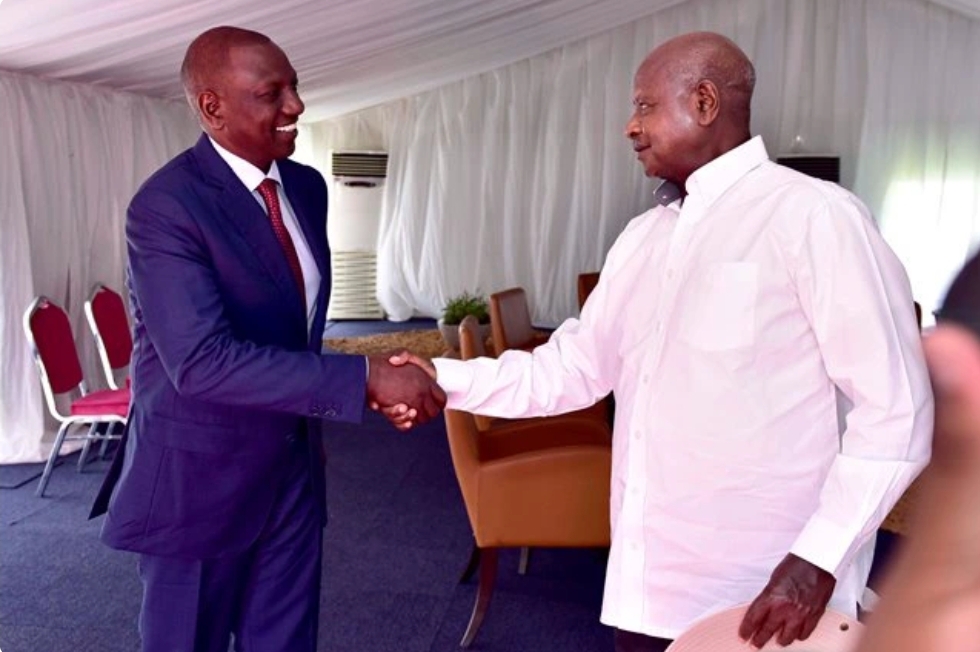SAME SCRIPT: Both Uganda & Kenyan Governments Say They Have Intelligence Reports that Protests Will Be Hijacked by Bad Elements

'Police shall not allow any form of demonstrations in crowded cities and towns to disrupt lawful activities'
Uganda’s police has made it clear it will not allow protests in crowded places. And in neighboring Kenya where protests have created a political crisis, acting police chief Douglas Kanja is struggling with a similar scenario as calls for President William Ruto to resign persist, through protests.
On July 17, 2024, Kenya National Police Service issued a notice saying it had “credible intelligence” that there were potential threats associated with the planned demonstrations. Police advised against protests in the Nairobi Central Business District and surrounding areas.
Kenya police said “criminals have continued to infiltrate the protesting groups, resulting in a troubling trend of disorderly and destructive conduct” and that “the lack of designated leadership in previous demonstrations” that had “made it difficult to enforce safety protocols.”
It should be remembered that at the start of the protests, in which over 40 people have so far been killed, President Ruto labelled protesters “dangerous criminals” deserving to be punished for their “treasonous” actions. (See Details Here and There).
The police notice was taken as ‘a ban on protests” that a judge has suspended. After the court ruling, acting police chief Kanja said: “It is important to clarify that we have not banned public demonstrations. The nature of public demonstrations is dynamic, and intelligence regarding everyone’s safety and security is evolving and will continue to inform our planning and guidelines.”
In Uganda, four youths had sought police cooperation and protection for a protest march to parliament against corruption. But Uganda Police Force Director of Operations PSC Frank Mwesigwa, acting for Inspector General of Police Abbas Byakagaba, has said protests will not be allowed because of intelligence reports that bad elements will hijack them.
Praise Aloikin Opoloje, Cynthia Nakato, George Victor Otieno and Makana Kennedy Ndyamuhaki have met with police and given them a notice of public meeting scheduled for July 23, 2024. But police appears to have banned the march to parliament.
Again, the grounds are almost similar – even in wording – to what have been advanced by the Kenyan police: that there are “credible intelligence” reports that bad elements will “disrupt public order and incite violence.”
“We have reservations about several issues discussed, notably the number of expected demonstrators. Uganda Police Force has credible intelligence that some elements want to use this opportunity to disrupt public order and incite violence,” wrote Mwesigwa.
“In light of this, the UPF is mandated to protect the citizens of Uganda against threats of anarchy and disorder. We therefore implore you to exploit non-antagonistic approaches to express your dissatisfactions. Police shall not allow any form of demonstrations in crowded cities and towns to disrupt lawful activities.”
In the wake of Kenyan protests, internal affairs minister Maj Gen Kahinda Otafiire has urged young people to wake up, saying demanding accountability is not hate speech – especially after a government official was remanded for calling speaker Anita Among ‘corrupt, murderer, kidnapper, torturer.’ (See Details Here and There).
Opposition leader Bobi Wine has called on Ugandan Gen Zs to emulate their Kenyan counterparts but police has made it clear it will not allow the march to parliament



1 Comments
EquilibradoGar
07 Aug '25